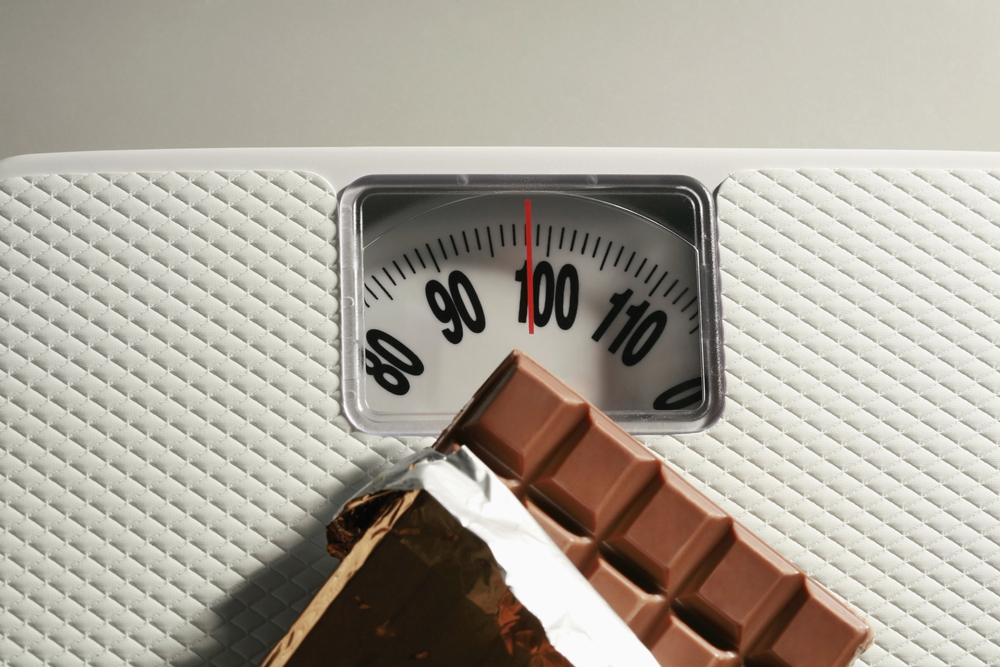Touch of Red Luxury, Syahrini Combines Red Shoes and Rp1.5 Million Bag
The shoes and bag are bright red

Dream - Ramadan is often used to lose weight due to a shorter eating window. Many people also have a reduced appetite during suhoor and iftar, but this does not necessarily lead to weight loss.
There are many people who actually experience weight gain during fasting. The causes of weight gain during fasting are quite diverse. What are they? Let's find out.
Excess Calories

Photo: Shutterstock
According to Diet Coach, Kunto Wibisono, reducing meal times does not guarantee weight loss. Consuming high-calorie foods such as fried foods, pastries, coconut milk-based dishes, or high-sugar foods can actually increase weight.
"Even if your eating window is limited, if you consume high-calorie foods, you can still gain weight," said Kunto in a video he uploaded on Instagram.
The number of calories and nutrients consumed must be controlled to manage weight, especially if you want to have a proportional body.
Dehydration during fasting causes the body to retain more water, resulting in temporary weight gain.
"For example, if you don't drink enough water, which is common during fasting, your body will try to hold and store extra water, similar to a camel. Since there is extra water being retained, your weight will automatically increase".
If the body's water content is sufficient, the weight will return to normal. Food that is not fully digested, lack of sleep, being on or near menstruation, consuming a lot of carbohydrates, heavy exercise, or not having a bowel movement can also cause a drastic temporary weight gain.
Excess fat will occur if there is a consistent excess of calories over a long period of time, around 2-4 weeks, so reducing the amount of food consumed can effectively help in weight loss. Of course, you also need to choose the right food and control your daily calorie intake.
View this post on Instagram
Dream - Many people think that weight will definitely decrease during Ramadan. However, weight can also increase drastically during fasting due to certain habits such as increased food portions, lack of regular exercise, or lack of physical activity.
Weight gain can still be prevented by maintaining healthy habits and controlling appetite during suhoor and iftar. Nutritional needs can still be met even with a shorter eating window.
You only need to consume protein-rich and high-fiber foods to have more energy and avoid feeling hungry during fasting. Also, follow the recommended habits from Fitness Content Creator, Maria Eleonora, as follows.

Photo: Shutterstock
Some people consume a lot of food after iftar because they feel very hungry from the previous fasting period. As a result, the portion of food is not controlled.
Usually, a person does not pay much attention to the feeling of fullness and focuses on consuming various foods to satisfy hunger.
However, it is important to prioritize a mindful eating approach by savoring each bite and chew to feel full more easily and control food portions.
Avoid sweet foods processed with artificial sweeteners and syrups, especially in large quantities. Blood sugar levels can spike, making you easily hungry after consuming sweet foods or drinks.

Replace foods and drinks that use artificial sweeteners with fruits. If necessary, choose fruits that are not too sweet to control blood sugar levels.

Photo: Shutterstock
Consume fiber-rich foods to avoid feeling hungry during fasting. This applies not only during suhoor but also during iftar to prevent excessive appetite or overeating.
4. Consume Protein-Rich Foods
Consuming protein-rich foods can make you feel more refreshed and energized during fasting. Protein-rich foods also help prevent hunger, making fasting easier to endure.

Photo: Shutterstock
Avoid fried foods, especially those cooked with palm oil. Palm oil contains high levels of saturated fat, which is not good for heart health.
Fried foods are also usually high in carbohydrates and fats, which can have a negative impact on weight gain and gastric health. Choose foods that are grilled, roasted, or steamed instead.
Do not abandon the habit of exercising during fasting. Establish a routine of simple and light exercises that are easier to perform while fasting without causing excessive hunger.
You can also do it closer to iftar time to avoid feeling too thirsty or hungry for too long after exercising.
Source: Instagram @eleonoramaria
Cobain For You Page (FYP) Yang kamu suka ada di sini,
lihat isinya
The shoes and bag are bright red
Although she appears unprepared, BCL carries an attention-grabbing black bag
The full printing top doesn't make Olla afraid to explore, she combines the full scribble top with full printing pants.
Lower bad cholesterol levels and prevent cardiovascular diseases by changing your lifestyle.
To refresh your body and mind and avoid burnout due to hustle culture, you must try these effective methods!
However, there are some hijabers who wear Muslim clothing that is not in accordance with Islamic law.
This Irish blue blazer is combined with a square scarf in Irish blue color and white pants that look so harmonious
This a-line dress looks sweet with puff sleeves on the arms
Find out other benefits of consuming fiber.
These shoes are making a comeback with their distinctive intro colors from the street culture of the 80s and 90s.
This woman with 1 million Instagram followers appears in an all-white or white on white outfit.
Its small size combined with retro and modern design makes this car look attractive.